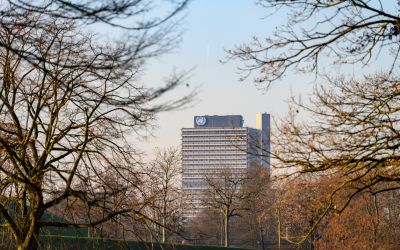Developing world missing out on biomass benefits
Biomass energy already fuels the lives of many people in developing countries but the practices that take wood from the forest to become charcoal in the home are often illegal and highly inefficient. An International Institute for Environment and Development (IIED) report argues that governments should begin implementing policies that better utilise this resource in order to reduce poverty and climate change.

.jpg) Many developing countries, already heavily reliant on biomass energy, are missing out on tax revenue and preventing sustainable management, because utilising it is often criminal and stigmatised, says a report (10 March) by the International Institute for Environment and Development (IIED).
Many developing countries, already heavily reliant on biomass energy, are missing out on tax revenue and preventing sustainable management, because utilising it is often criminal and stigmatised, says a report (10 March) by the International Institute for Environment and Development (IIED).
Biomass energy such as wood and charcoal accounts for 10 per cent of global energy consumption and this will treble by 2050, according to the report.
It says, the potential of biomass as a renewable energy source, in developed countries, is being utilised but the developing world is missing out, partly because of “inappropriate policies and corruption”.
Formal wood collection and charcoal production is often restricted or illegal because of the perceived threat of deforestation.
Biomass is still, however, big business in the developing world – charcoal production is the third largest industry in Malawi and is worth $41.3 million; but no official revenue is collected from the trade.
Supply chains are in place but there is no incentive to maintain the forests and produce the charcoal in as efficient a way as possible.
If utilised correctly, the economic benefits would be huge.
Duncan Macqueen, co-author of the report and a senior researcher at IIED said: “If you’ve got that dependence on biomass and well established existing value chains to transport it in.
“Why not instead of criminalising it, make it sustainable and use government taxes to reinvest in technological development that will do some interesting and innovative things?”
He uses the example of India where, thanks to introducing tax incentives for biomass technology developers, they found that biomass could be gasified to produce electricity at a community level.
At the moment, in many developing countries, the situation is not conducive for investment in the biomass industry.
“No investor will invest in building a small electricity plant that would run off wood if the sustainability of the supply is threatened because of the way in which policies criminalise the collection of wood energy,” said Macqueen.
Macqueen hopes governments in developing countries will start thinking about how to transition away from “informal, covert, highly inefficient and corrupt practises, towards ones that are proper formal businesses that have proper resource management plans and sustainable management.”
The IIED report outlines ways countries can start to take advantage of the potential of biomass in order to combat climate change and poverty, as well as providing energy security.
These include putting biomass at the centre of national energy security strategies and supporting investment in new technologies such as plants that generate electricity from biomass.
For further information:
Bundles of energy: the case for renewable biomass energy (IIED)
Image: coda | Flickr






